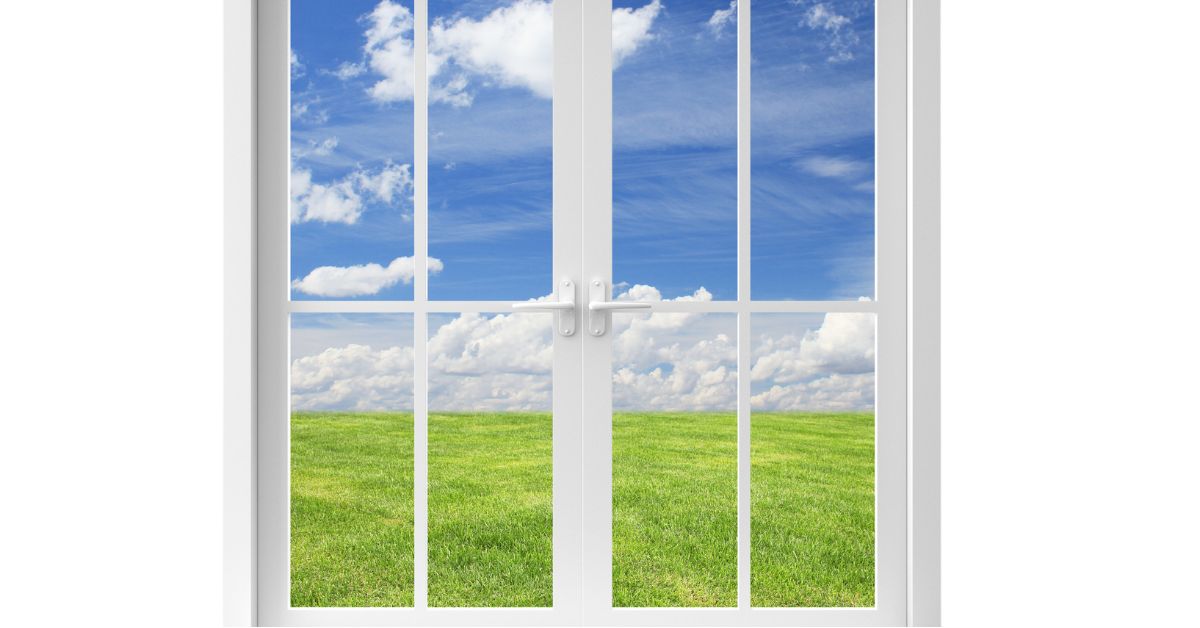Windows are used in literature, art, films and many other contexts to symbolize various things including opportunity, an alternative path, hope, and light.
In most contexts, a window represents an opening that something or someone can get in or out through. In others, it represents a view into another perspective. Below, we discuss the various meanings and symbolism of a window.
What You'll Learn Today
What Does A Window Symbolize?

Let’s start by discussing some general meanings of windows.
Because windows serve the same functionality virtually everywhere (an opening in the wall to let light in or let us see outside), their symbolism is similar across different cultures and beliefs.
One common symbolism of a window is as an entry point for light. Here, light represents good things like hope, success, joy, and beauty.
The window brings light into a dark situation.
Windows also often represent an opening for us to see beyond our environment and perspective. This can be a view into another culture, someone else’s experiences, or a different way of life.
While we cannot get out and experience that perspective, that view through the metaphorical window can build us, help us empathize or become a learning opportunity.
Finally, a window is often seen as an alternative entry or exit point to the door. A common way to interpret this is if you lose out on an opportunity, there’s always another. You just have to find it.
This particular symbolism is the source of the popular quote, “When God closes a door somewhere he opens a window.”
What Does A Window Symbolize In Literature?
One of the areas where a window is commonly used for its symbolism is in literature. This includes stories, novels, and poems among other types of work.
The meaning of a window in a piece of literature depends on the particular context and intention. Of course, it could also mean nothing. Sometimes a window is just a window.
Here are some of the different meanings of a window in literature.
- In many stories, a window represents hope and longing. It could be a character wistfully looking out through the window contemplating what’s to come or longing for someone or something that’s not there.
- A window can also stand for a view into a different perspective that you can’t experience but might empathize with. For example, many books use the symbolism of a window to help readers peek into the life, emotions, or experience of a character.
- A window can also represent an opportunity to escape (with the room representing a prison of some sort) or to take a different path in life.
- A window opening in literature can represent renewal, growth, or rebirth. Light and fresh air pours in, giving new life to a dark room.
What Does A Window Symbolize In Art?
Windows are a common feature in paintings and art pieces. In some cases, they don’t have any symbolism. They could be just another part of the scene.
In some pieces, however, windows are central to the message and intention of the art.
Some famous paintings with a symbolic window (or windows) in them include Grant Wood’s American Gothic, Faith Ringgold’s Street Story Quilt, and Vermeer’s Girl Reading a Letter by an Open Window.
In many pieces, a window is a tool to help us peer into a different perspective or life represented by the art piece.
For instance, the Street Story Quilt painting uses many windows to give us a glimpse into the live of black households living in Harlem.
There are many paintings with characters looking out the window or sitting by a window.
Two examples are the aforementioned Girl Reading a Letter by an Open Window and Woman Reading a Letter by Pieter de Hooch.
These pieces often represent deep emotions of longing and hope.
In some paintings, what you can see through the window is far more interesting than what’s in the room. It could be a beautiful landscape, people, or a ship. This typically represents a longing to escape the current life that’s probably boring or bad in a way.
An example is The woman at the window by Caspar David Friedrich.
It can also represent a desire for freedom and independence as is the case in Leonora Carrington’s Self-Portrait (Inn of the Dawn Horse).
Next time you see a piece of art with a window somewhere in it, see if it’s there to draw your attention to something deeper. It’ll help you understand the painting much better.
What Does A Window Symbolize In The Bible?

The most symbolic use of the term ‘window’ in the Bible is in the phrase ‘windows of heaven’.
It’s mentioned in Malachi 3:10 as well as Isaiah 24:18. In both instances, the metaphorical windows are connections between heaven and our world.
In Malachi, God promises to open the windows of heaven and pour out blessings to those who tithe.
In most uses within Christianity, windows of heaven refers to God’s outpouring of blessings, hope, and other good things in our lives.
This symbolism is also implied in 2 Kings 7:19.
…“That couldn’t happen even if the LORD opened the windows of heaven!” And the man of God had said, “You will see it happen with your own eyes, but you won’t be able to eat any of it!”
But it’s not always that ‘windows of heaven’ bring blessings. Sometimes, they can bring God’s judgment and wrath.
This is the case in Isaiah 24:18.
“…For the windows of heaven are opened, and the foundations of the earth tremble.”
When the Bible narrates the coming of Noah’s flood, it says, “all the fountains of the great deep were broken up, and the windows of heaven were opened.”
This symbolizes the coming of God’s judgment.
Bottom Line
In most instances, windows symbolize good things. A window brings light into the room, which represents growth or a new beginning.
Like in real life, a window also acts as an eye to see a different view and perspective beyond the one you are in. In this case, the window can indicate longing for someone or something that’s out there, hope for a different life, or a desire to escape.
The exact symbolism of a window depends on the context it’s used or shown in as well as your own cultural background and religious beliefs.
Looking for more spiritual meanings of things? Read this guide to symbolism of a well.